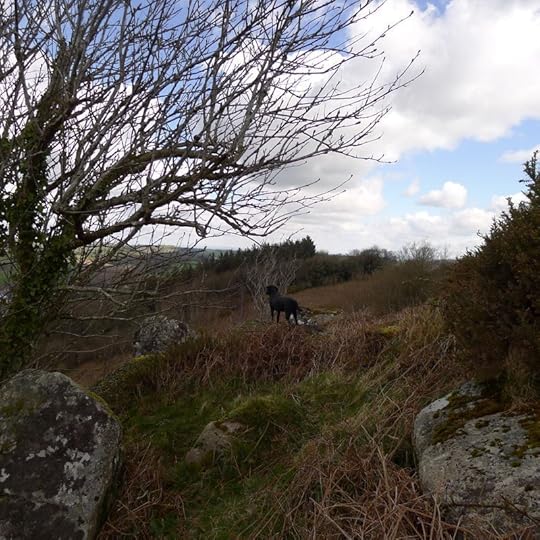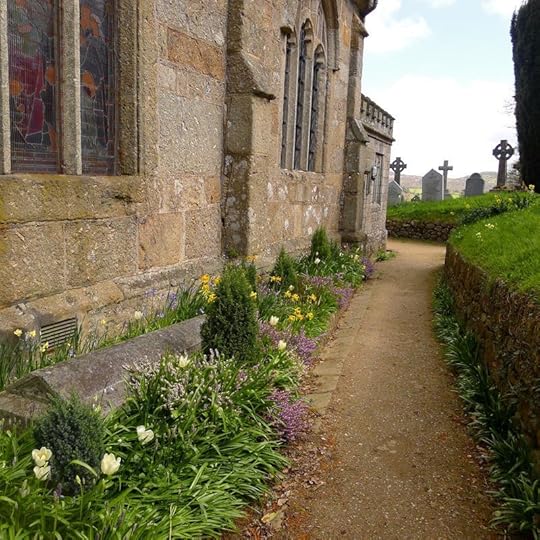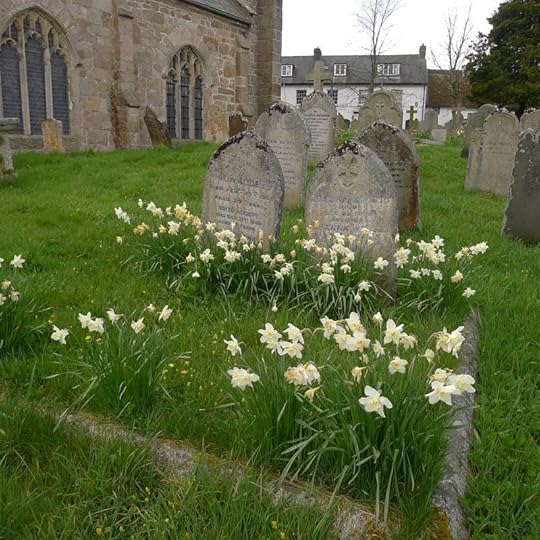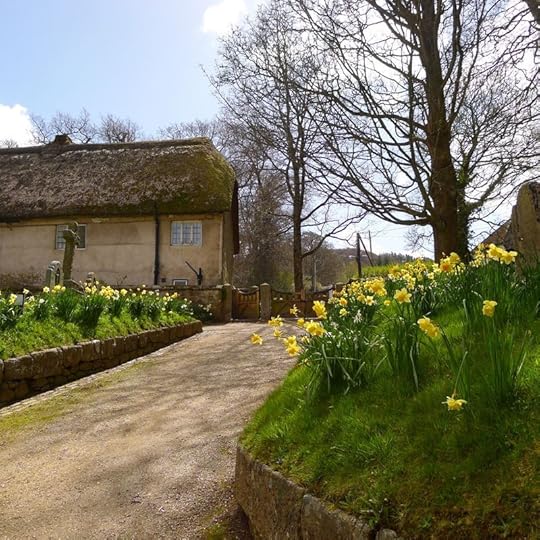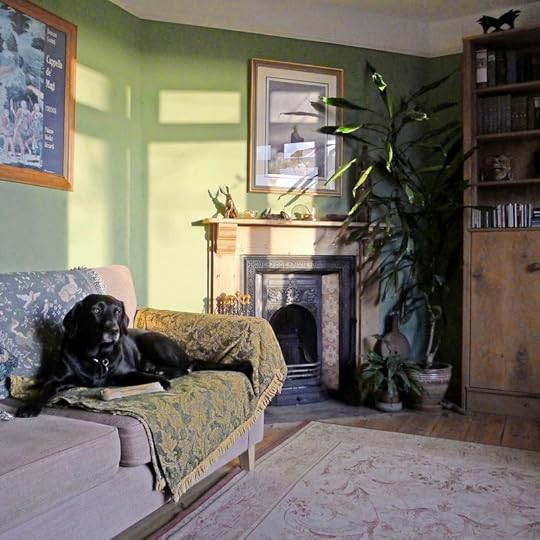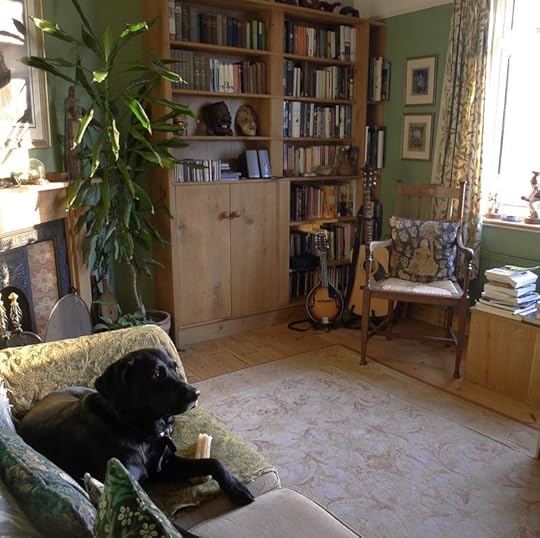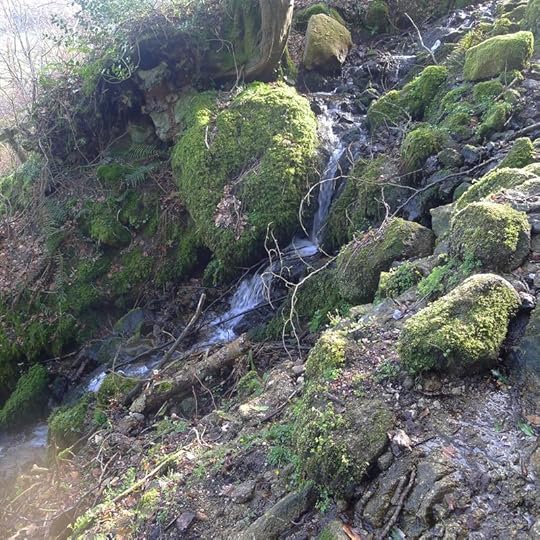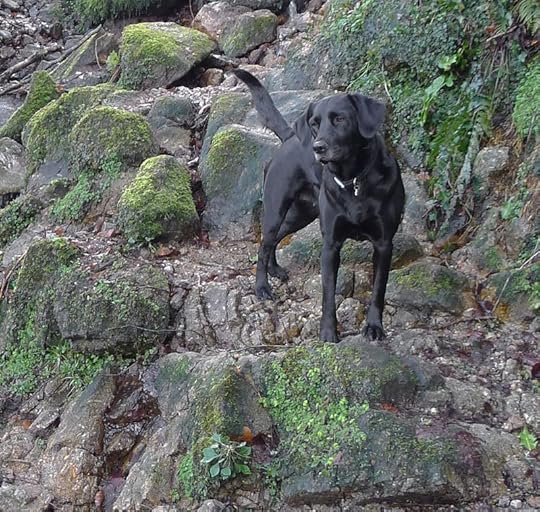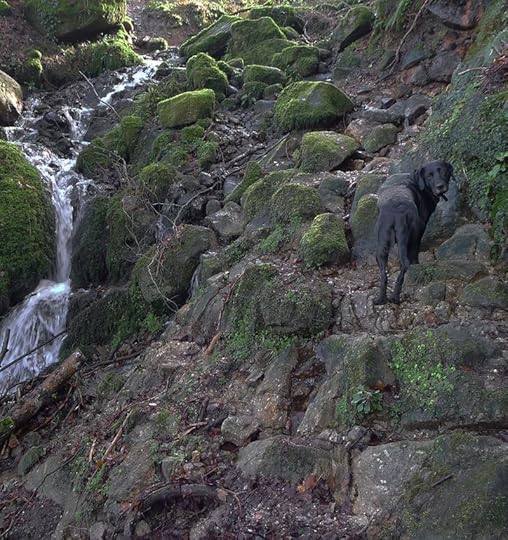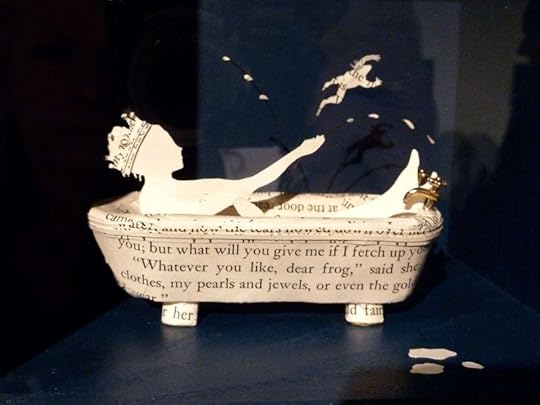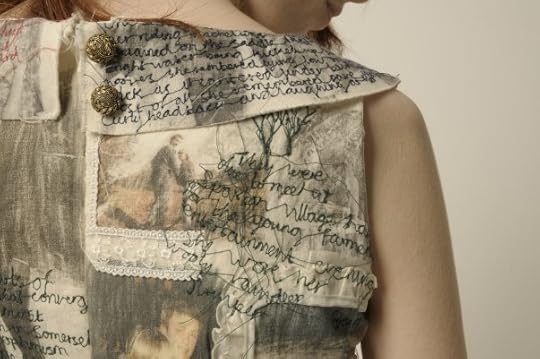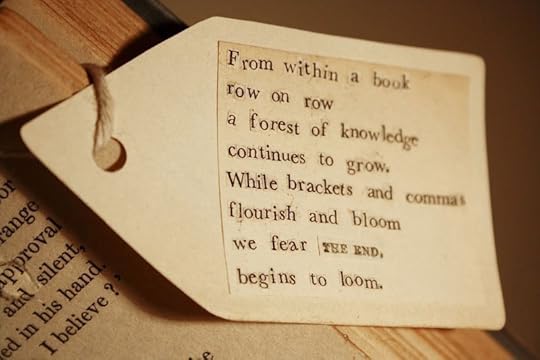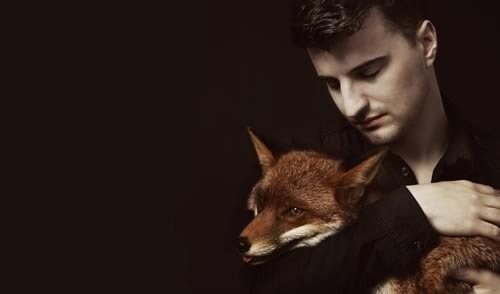Terri Windling's Blog, page 192
May 7, 2013
The place of beginning
"Many of us in this time have lost the inner substance of our lives
and forgotten to give praise and remember the sacredness of all life.
But in spite of this forgetting, there is still a part of us that is
deep and intimate with the world. We remember it by feel. We experience
it as a murmur in the night, a longing and restlessness that we can't
name, a yearning that tugs at us. For it is only recently, in earth
time, that the severings of the connections between people and land have
taken place. Something in our human blood is still searching for it,
still listening, still remembering. Nicaraguan poet-priest Ernesto
Cardenal wrote, ' We have always wanted something beyond what we
wanted.' I have loved those words, how they speak to the longing place
inside us that seeks to be whole and connected to the earth. This too is
the place of beginning, the source of our living."
- Linda Hogan (Dwellings: A Spiritual History of the Living World)
"Watch young children outdoors. It’s very rare to find a young child who
is not enthusiastically curious about the life around him, whatever form
that life takes. I was just with my two-year-old grandson this past
weekend. A stroll around the yard with him takes a while. He points to a
butterfly with great excitement and wants the name and tries to repeat
it. He brings a very tiny golden-bronze seed to me to hold and keep. And
treasure. 'Bug' was one of his first words. He can watch a trail of
ants with an enduring focus. 'Moon' was an early word for my sons and my
grandsons, too. The sight of the moon always occasioned joy and rapt
attention. And dandelions, even to my five-year-old grandsons, are
amazing and beautiful. And they are right to be so amazed. The life
forms on our earth are amazing to children, and they remain amazing for
many adults. The more we learn about them the more amazing and
mysterious they become. The same is true for all the stars and cosmic
bodies existing in the heavens. The universe is overflowing with
passion. For my own sake, I try with words to tap into that passion,
that intense will-to-be, the tight hold against oblivion, the yes-power
existing within all the manifestations of light."
-- Pattiann Rogers (interviewed by Jeannine Hall Gailey in Poets & Writers)
"Mystery is at the heart of creativity. That, and surprise. " - Julia Cameron (The Artist's Way)
May 6, 2013
Spring arrives in Chagford
From Beauty: The Invisible Embrace by the late Irish poet and philosopher John O'Donohue (whose books I turn to again and again):
"The beauty of the earth is the first beauty. Millions of years before us the earth lived in wild elegance. Landscape is the first-born of creation. Sculpted with huge patience over millenia, landscape has an enormous diversity of shape, presence, and memory. There is poignancy in beholding the beauty of landscape: it often feels as though it has been waiting for centuries for the recognition and witness of the human eye. In the ninth Duino Elgy, Rilke says:
Perhaps we are here in order to say: house,
bridge, fountain, gate, pitcher, fruit-tree, window...
To say them more intensely than the Things themselves
Ever dreamed of existing.
"How can we ever know the difference we make to the soul of the earth? Where the infinite stillness of the earth meets the passion of the human eye, invisible depths strain towards the mirror of the name. In the word, the earth breaks silence. It has waited a long time for the word. Concealed beneath familiarity and silence, the earth holds back and it never occurs to us to wonder how the earth sees us. Is it not possible that a place could have huge affection for those who dwell there? Perhaps your place loves having you there. It misses you when you are away and in its secret way rejoices when you return. Could it be possible that a landscape might have a deep friendship with you? that it could sense your presence and feel the care you extend towards it? Perhaps your favourite place feels proud of you. We tend to think of death as a return to clay, a victory for nature. But maybe it is the converse: that when you die, your native place will fill with sorrow. It will miss your voice, your breath and the bright waves of your thought, how you walked through the light and brought news of other places. Perhaps each day our lives undertake unknown tasks on behalf of the silent mind and vast soul of nature. During its millions of years of presence perhaps it was also waiting for us, for our eyes and our words. Each of us is a secret envoi of the earth.
"We were once enwombed in the earth and the silence of the body
remembers that dark, inner longing. Fashioned from clay, we carry the
memory of the earth. Ancient, forgotten things stir within our hearts,
memories from the time before the mind was born. Within us are depths
that keep watch. These are depths that no words can trawl or light
unriddle. Our neon times have neglected and evaded the depth-kingdoms of
interiority in favour of the ghost realms of cyberspace. Our world
becomes reduced to an intense but transient foreground. We have
unlearned the patience and attention of lingering at the thresholds
where the unknown awaits us. "
From Annie Dillard, contributing to an article on "The Meaning of Life" (Life Magazine, 1988):
“We are here to abet creation and to
witness it, to notice each thing so each thing gets noticed. Together
we notice not only each mountain shadow and each stone on the beach
but we notice each other's beautiful face and complex nature so that
creation need not play to an empty house.”
 Pictures above: Daffodils in the village churchyard, and Tilly among the wild daffodils in our woods.
Pictures above: Daffodils in the village churchyard, and Tilly among the wild daffodils in our woods.
May 5, 2013
Tunes for a Monday Morning
I'm back, and I'm still in a British folk groove (heck, I'm always in a British folk groove), so here's more beautiful music from these beautiful islands....
Above: Damien O'Kane performs "Summer Hill," backed up by John Joe Kelly, Gerard Thompson, and his wife, Kate Rusby. The song comes from his 2010 album of the same name.
Below: Kate Rusby performs "No Names" at Celtic Connection in 2011, backed up by Damien. The song comes from her 7th album, The Girl Who Couldn't Fly.
Kate comes from a musical family in the north of England, Damien from a musical family in Northern Ireland. They live in Yorkshire with their two young daughters and a dog named Doris (pictured below).
Above: Kate sings "The Mockingbird" at the Cambridge Folk Festival in 2011. The song comes from her 9th album, No Light. (Her latest release is a double album, 2o, and it's superb.)
And to end on a livelier note, here's Damien on banjo, performing a trio of tunes with Shona Kilpling on accordion: "The End," "Trip to Romania," and "Fringe Benefits." The musicianship here is dazzling.
If you'd like a little more this morning, try "Wandering Soul" performed by Kate Rusby & Friends at the Royal Festival Hall in London last autumn. The video is a little shaky, but the song is gorgeous, and the introduction is adorable.
April 28, 2013
It's Offline Week here at Bumblehill
Speaking of rest, work/life balance, and taking things one step at a time (as we were in Saturday's post), the week ahead is an Offline Week for me so that I can focus on a work deadline. Also, as long time readers know, I take periodic breaks from life online in order to make sure my roots are firmly grounded in the land underfoot and the life and community around me...which I think is a good practice in this digital age.
Tilly and I will be back on Monday, May 6. Happy trails till then!
"Benedicto: May your trails be crooked,
winding, lonesome, dangerous, leading to the most amazing view. May
your mountains rise into and above the clouds. May your rivers flow
without end, meandering through pastoral valleys tinkling with bells,
past temples and castles and poets towers into a dark primeval forest
where tigers belch and monkeys howl, through miasmal and mysterious
swamps and down into a desert of red rock, blue mesas, domes and
pinnacles and grottos of endless stone, and down again into a deep
vast ancient unknown chasm where bars of sunlight blaze on profiled
cliffs, where deer walk across the white sand beaches, where storms
come and go as lightning clangs upon the high crags, where something
strange and more beautiful and more full of wonder than your deepest
dreams waits for you — beyond that next turning of the canyon
walls.” – Edward Abbey (1927-1989)
(Do feel free to carry on the conversations in the various Comment threads, and I'll join in again next week.)
April 26, 2013
In praise of rest
"I always forget how important the empty days are, how important it may
be sometimes not to expect to produce anything, even a few lines in a
journal. A day when one has not pushed oneself to the limit seems a
damaged damaging day, a sinful day. Not so! The most valuable thing one
can do for the psyche, occasionally, is to let it rest, wander, live in
the changing light of a room." - May Sarton (A Journal of Solitude)
"Work is not always required. There is such a thing as sacred idleness, the cultivation of which is now fearfully neglected." - George MacDonald
“Every person needs to take one day away. A day in which one
consciously separates the past from the future. Jobs, family,
employers, and friends can exist one day without any one of us, and if
our egos permit us to confess, they could exist eternally in our
absence. Each person deserves a day away in which no problems are
confronted, no solutions searched for. Each of us needs to withdraw
from the cares which will not withdraw from us.” - Maya Angelou (Wouldn't Take Nothing for My Journey Now)
"In order to understand the world, one has to turn away from it on occasion." - Albert Camus (The Minotaur)
"I said to my soul be still and wait... So the darkness shall be the light, and the stillness the dancing." - T.S. Elliot
"By letting go, it all gets done." - Lao Tzu
 Images above: Tilly living, as May Sarton advises, in the changing light of a room.
Images above: Tilly living, as May Sarton advises, in the changing light of a room.
April 25, 2013
The language of illumination and memory
"I write in service of illumination and memory. I write to reach into 'the blind world where no one can help.' I write because it is a way of
glimpsing the truth. And I write to create something of beauty." - Mark Helprin (The Paris Review)
"The light of memory, or rather the light that memory lends to things, is the palest light of all. I am not quite sure whether I am dreaming or remembering, whether I have lived my life or dreamed it. Just as dreams do, memory makes me profoundly aware of the unreality, the evanescence of the world, a fleeting image in the moving water.'' ― Eugène Ionesco
“We seem to live in a world where forgetting and oblivion are an
industry in themselves and very, very few people are remotely interested
or aware of their own recent history, much less their neighbors'. I
tend to think we are what we remember, what we know. The less we
remember, the less we know about ourselves, the less we are." - Carlos Ruiz Zafón (Three Monkeys Online)
"In the ordinary jumble of my literary drawer, I sometimes find texts
I wrote ten, fifteen, or even more years ago. And many of the seem to
me written by a stranger: I simply do not recognize myself in them.
There was a person who wrote them, and it was I. I experienced them, but
it was in another life, from which I just woke up, as if from someone
else's dream.” ― Fernando Pessoa (The Book of Disquiet)
“You remember only what you want to remember. You know only what your heart allows you to know.” -
Amy Tan (Saving Fish from Drowning
)
"Memory is a part of the present. It builds us up inside; it knits our
bones to our muscles and keeps our hearts pumping. It is memory that
reminds our bodies to work, and memory that reminds our spirits to work
too: it keeps us who we are." - Gregory Maguire (Son of a Witch)
"All water has a perfect memory and is forever trying to get back to where
it was. Writers are like that, remembering where we were, what valley
we ran through, what the banks were like, the light that was there
and the route back to our original place." - Toni Morrison ("The Site of Memory")
 Images above: the waterfall on our hill, one of Tilly's favorite places.
Images above: the waterfall on our hill, one of Tilly's favorite places.
April 24, 2013
The language of fairy tales
From a discussion with Joanne Harris (author of Chocolat, etc.) in the current issue of The Write Place at The Write Time:
"Traditionally, the role of fairy stories has been to articulate concepts too
emotionally difficult or socially subversive to be treated in a more
explicit way. Originally part of a matriarchal oral tradition,
they became legitimized as a more patriarchal literary convention --
much in the same way that traditional magic (feminine) was later
absorbed by the (primarily male) science of alchemy before shedding
its magical elements altogether and becoming the science of
chemistry.
"Elemental fears, subconscious desires, sexual taboos are all at the heart of
the fairytale; initially intended for an adult, rather than a
juvenile audience, enabling folk with bleak and often unhappy lives
to come to terms with their monsters, both literal and metaphorical,
as well as offering them the hope that sometimes those monsters could
be overcome. Since then, much has been made of the deepening division
between the literal and figurative view of fairytale (in the same way
that the division between science and magic has now become
definitive), but in my view, the basic need for these stories is as
great as it ever was.
"Like our concept of the divine, which has expanded over 2000 years to fit
an expanding world picture, our acceptance of the supernatural has
changed -- at least, to a point -- although I would argue
that even three hundred years ago, fairy tales were not intended to
be taken entirely literally. Every age has its monsters, be
they werewolves, vampires, terrorists, AIDS, crazed gunmen or
pedophiles, and every age needs to believe in the ability of human
beings to defeat monsters, change their lives and ultimately be saved
by love.
"I would argue, furthermore, that every age has its magic, too --
although our concept of magic has adapted to fit a more rational
world. We now have a need to rationalize our need to believe in
magic, as our world picture and our understanding of possibility
continues to expand. But as the science-pendulum begins to swing back -- with particle physics seemingly bringing us back ever closer to
what once was called 'magic,' I think that the literal-figurative
debate will become increasingly less relevant, as will the division
between 'conventional literature' and the oral tradition. These
stories speak to the irrational mind, and therein lies their power."
(I recommend reading the whole interview here.)
From a discussion with me in the same web journal a few years back:
"As
with myths and folk tales, a good fantasy novel is literally
spell-binding, using language to conjure up whole new worlds, or to
invest our own with magic. The particular power of the fantasy novel
comes from its link with the world's most ancient stories – and
from the author's careful manipulation of mythic archetypes, story
patterns, and symbols. A skillful writer of fantasy knows he or she
must tell two stories at once: the surface tale, and a deeper story
encoded within the tale's symbolic language. Harry
Potter and The Sorcerer's Stone (for example) is, on one level,
simply an English boarding school novel with a bit of magic thrown in;
but below that surface is a classic narrative of the Orphaned
Hero archetype. This second, metaphorical story is the one that makes the
novel's appeal so universal, speaking to all children (orphaned or
not) who navigate the treacherous passage that lies between childhood
and adulthood. I don't mean that children's fantasy should be
didactic, with a subtext intended to inculcate moral lessons –
heaven forbid! But the magical tropes of fantasy, rooted as they are
in world mythology, come freighted with meaning on a metaphoric
level. A responsible writer works with these symbols consciously and
pays attention to both aspects of the story.
"Jane Yolen once wrote, 'Just as a child is born with a literal hole in
his head, where the bones slowly close underneath the fragile shield
of skin, so the child is born with a figurative hole in his heart.
What slips in before it anneals shapes the man or woman into which
that child will grow. Story is one of the most serious intruders into
the heart.' I believe that those of us who write stories for children or young
adults should remember how powerful stories can be -- and take
responsibility for the moral tenor of whatever dreams or nightmares
we're letting loose into the world. This is particularly true in fantasy, where the tools of our trade include the language, symbolism
and archetypal energies of myth.
These are ancient, subtle, potent things, and they work in mysterious
ways."
And from Ursula K. Le Guin's classic essay “From Elfland to Poughkeepsie” (1973):
"[Fantasy] is not
anti-rational, but para-rational; not realistic but surrealistic, superrealistic, a
heightening of reality. In Freud’s terminology, it employs primary
not secondary process thinking. It employs archetypes which, as Jung
warned us, are dangerous things. Dragons are more dangerous, and a good deal commoner, than bears. Fantasy is nearer to poetry, to
mysticism, and to insanity that naturalistic fiction is. And it is a real
wilderness, and those who go there should not feel too safe. And their guides, the writers of fantasy, should take their responsibilities seriously."
Your thoughts?
 The sculptures here, of course, are by the UK artist Su Blackwell -- for no look at paper art this week would be complete without re-visiting her splendid work. From top to bottom: "The Raven," "The Frog Prince," "Sleeping Beauty," "The Woman in the Wood," "Cinderella," "The Wild Swans," and "Out of Narnia." Jane's quote above comes from Touch
The sculptures here, of course, are by the UK artist Su Blackwell -- for no look at paper art this week would be complete without re-visiting her splendid work. From top to bottom: "The Raven," "The Frog Prince," "Sleeping Beauty," "The Woman in the Wood," "Cinderella," "The Wild Swans," and "Out of Narnia." Jane's quote above comes from Touch
Magic: Fantasy, Faerie & Folklore in the Literature of
Childhood.
April 23, 2013
A word on words
“There is something about words. In expert hands, manipulated deftly,
they take you prisoner. Wind themselves around your limbs like spider
silk, and when you are so enthralled you cannot move, they pierce your
skin, enter your blood, numb your thoughts. Inside you they work their
magic.” - Diane Setterfield (The Thirteeth Tale)
"'Some people say the best stories have no words….It is true that
words drop away, and that the important things are left unsaid. The
important things are learned in faces, in gestures, not in our locked
tongues. The true things are too big or too small, or in any case always
the wrong size to fit the template called language. I know that. But I know something else too….Turn down the daily
noise and at first there is the relief of silence. And then, very
quietly, as quiet as light, meaning returns. Words are the part of
silence that can be spoken.” – Jeanette Winterson (Lighthousekeeping)
"Colorful language threatens some people, who associate it, I think,
with a kind of eroticism (playing with language in public = playing with
yourself), and with extra expense (having to sense or feel more). I
don't share that opinion. Why reduce life to a monotone? Is that truer
to the experience of being alive? I don't think so. It robs us of life's
many textures. Language provides an abundance of words to keep us
company on our travels. But we're losing words at a reckless pace, the
national vocabulary is shrinking. Most Americans use only several
hundred words or so. Frugality has its place, but not in the larder of
language. We rely on words to help us detail how we feel, what we once
felt, what we can feel. When the blood drains out of language, one's
experience of life weakens and grows pale. It's not simply a dumbing
down, but a numbing.” - Diane Ackerman (An Alchemy of the Mind)
“If I read a book and it makes my whole body so cold no fire can warm
me, I know that is poetry. If I feel physically as if the top of my head
were taken off, I know that is poetry. These are the only ways I know
it. Is there any other way?”
- Emily Dickinson (Selected Letters)
"Personally I think that grammar is a way to attain Beauty. When you speak, or
read, or write, you can tell if you've spoken or read or written a
fine sentence. You can recognise a well-tuned phrase or an elegant
style. But when you are applying the rules of grammar skilfully, you
ascend to another level of the beauty of language. When you use
grammar you peel back the layers, to see how it is all put together,
to see it quite naked, in a way.” - Muriel
Barbery (The Elegance of the Hedgehog)
"I once saw a small child go to an electric light switch as say, 'Mamma,
can I open the light?' She was using the age-old language of
exploration, the language of art." - Ezra Pound
"The struggle of literature is in fact a struggle to escape from the
confines of language; it stretches out from the utmost limits of what
can be said; what stirs literature is the call and attraction of what
is not in the dictionary.” - Italo Calvino (The Literature Machine: Essays)
"Everything in writing begins with language. Language begins with listening." - Jeanette Winterson
“As I train myself to cast off words, as I learn to erase word-thoughts,
I begin to feel a new world rising up around me. The old world of
houses, rooms, trees and streets shimmers, wavers and tears away,
revealing another universe as startling as fire. We are shut off from
the fullness of things. Words hide the world. They blur together
elements that exist apart, or they break elements into pieces bind up
the world, contract it into hard little pellets of perception. But the
unbound world, the world behind the world – how fluid it is, how lovely
and dangerous. At rare moments of clarity, I succeed in breaking
through. Then I see. I see a place where nothing is known, because
nothing is shaped in advance by words. There, nothing is hidden from
me. There, every object presents itself entirely, with all its being.
It's as if, looking at a house, you were able to see all four sides and
both roof slopes. But then, there's no 'house,' no 'object,' no form
that stops at a boundary, only a stream of manifold, precise, and
nameless sensations, shifting into one another, pullulating, a fullness,
a flow. Stripped of words, untamed, the universe pours in on me from
every direction. I become what I see. I am earth, I am air. I amall.
My eyes are suns. My hair streams among the galaxies.”
- Stephen Millhauser (Dangerous Laughter)
"There
is language going on out there -- the language of the wild. Roars,
snorts, trumpets, squeals, whoops, and chirps all have meaning
derived over eons of expression. We have yet to become fluent in
the language -- and music -- of the wild.” - Boyd Norton (Serengeti)
"How monotonous our speaking becomes when we speak only to ourselves! And how insulting
to the other beings -- to foraging black bears and twisted old
cypresses -- that no longer sense us talking to them, but only about
them, as
though they were not present in our world….Small wonder that rivers and
forests no longer compel our focus or our fierce devotion. For we walk
about such entities only behind their backs, as though they were not
participant in our lives. Yet if we no longer call out to the moon
slipping between the clouds, or whisper to the spider setting the silken
struts of her web, well, then the numerous powers of this world will no
longer address us -- and if they still try, we will not likely hear them.” - David Abram (Becoming Animal)
“Perhaps it is the language that chooses the writers it needs, making
use of them so that each might express a tiny part of what it is.” - José Saramago
Art above: A detail from a paper sculpture by Susan Hannon (US); "Narrative Dress" by Harriet Popham (UK); One Hundred Million Billion Poems" by Raymond Queneau (France, 1903-1976); "Ships" by Victoria Semykina (Russia & Italy); pawprints on a 15th century book, photographed by medieval historian Erik Kwakkel; "Bambi and His Mother" by Jodi Harvey-Brown (US), and "From With a Book" by Emma Taylor (UK).
April 22, 2013
The communion of the word
"A writer is, first and last, a reader. Who do you write for? Gertrude Stein was asked, and famously replied, 'Myself and strangers.' That self, the reader-self who is allied with strangers, may be a writer's better half, more detached, more trust-worthy, than the writing self who swaggers through a lifetime of prose. It is difficult -- and diminishing -- to separate the self who writes from the one who reads. Both acts belong to the communion of the word, which is a writer's life."
- Patricia Hampl (I Could Tell You Stories)
"As you read a book word by word and page by page, you participate in
its creation, just as a cellist playing a Bach suite participates, note
by note, in the creation, the coming-to-be, the existence, of the
music. And, as you read and re-read, the book of course participates in
the creation of you, your thoughts and feelings, the size and temper of
your soul.”
“I spent my life folded between the pages of books. In the absence of
human relationships I formed bonds with paper characters. I lived love
and loss through stories threaded in history; I experienced adolescence
by association. My world is one interwoven web of words, stringing limb
to limb, bone to sinew, thoughts and images all together. I am a being
comprised of letters, a character created by sentences, a figment of
imagination formed through fiction.”
- Tahereh Mafi (Shatter Me)
From an interview with Richard Ford in The Paris Review:
Ford: "I want to write, partly at least, for the kind of reader I was when I was nineteen years old. I want to address that person because he or she is young enough that life is just beginning to seem a mystery which literature can address in surprising and pleasurable ways. When I was nineteen I began to read [William Faulkner's] Absalom, Absalom! slowly, slowly, page by patient page, since I was slightly dyslexic. I was working on the railroad, the Missouri-Pacific in Little Rock. I hadn’t been doing well in school, but I started reading. I don’t mean to say that reading altogether changed my life, but it certainly brought something into my life—possibility—that had not been there before."
Interviewer: "What was it about Absalom, Absalom!?"
Ford: "The language—a huge suffusing sea of wonderful words, made into beautiful, long paragraphs and put to the service of some great human conundrum it meant to console me about if not completely resolve. When I was old enough to think about myself as trying to be a writer, I always thought I would like to write a book and have it do that for someone else."
Yes.
 Images above: "Sequel" (and tree leaves from "Sequel") by UK artist Nicola Dale, book architecture by Dutch artist Frank Halmans, book sculpture by UK artist Emma Tayor, and details from "Proverbial Threads" by US artist Robbin Ami Silverberg.
Images above: "Sequel" (and tree leaves from "Sequel") by UK artist Nicola Dale, book architecture by Dutch artist Frank Halmans, book sculpture by UK artist Emma Tayor, and details from "Proverbial Threads" by US artist Robbin Ami Silverberg.
April 21, 2013
Tunes for a Monday Morning
This week, a few more songs from the extraordinary folk tradition of the British Isles:
Above: David Gibb & Elly Lucas, a folk duo out of Derbyshire in the English Midlands, peform a jazz-inflected version of "The Blacksmith." It comes from their 2012 album, Old Chairs to Mend (which also contains charming original songs like this one).
Below: Pilgrims Way, a trio from the northwest of England, performs "The Handweaver and the Factory Maid." The song comes from their 2011 debut album, Wayside Courtesies.
Next: Jim Moray, based in Bristol here in the southwest of England, performing "Lord Douglas," a variant of the Child Ballad "Earl Brand." The song comes from his fifth album, Skulk. The album's gorgeous cover photograph is above.
I confess I've been on the fence about Moray's music in the past, which mixes folk, rock, pop, and electronica -- but he's completely won me over now with Skulk, in which the traditional roots of the music are foregrounded a bit more. And lordy, what a beautiful voice he has for folk material. The album's name, says Moray, comes from the collective noun for foxes, inspired by fox legends and lore. (For more of his music this morning, go here.)
And last (because what could possibly follow this?): Sam Lee's rendition of "The Ballad of George Collins," from his 2012 album Ground of Its Own. It's a great song and a great album -- but this one gets my vote as the wackiest damn video of the year. Wonderful, and even weirdly magical, but truly wacky. See if you don't agree.
Lee, who comes from "a Jewish family of artists in Tufnell Park, north London," collected many of the songs he performs from Britian's Romany Gypsy community. There's a fascinating article about him on The Guardian's site here, which I highly recommend. How I'd love to have a long natter with this lad...preferably under the stars beside a warm campfire, with a bottle of good single malt whiskey to hand....
Terri Windling's Blog
- Terri Windling's profile
- 707 followers


